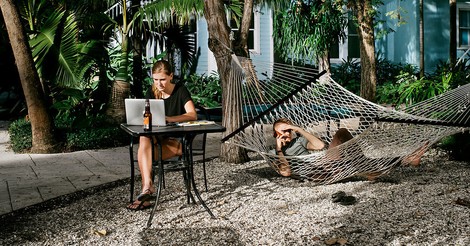Your podcast discovery platform
Curious minds select the most fascinating podcasts from around the world. Discover hand-piqd audio recommendations on your favorite topics.

piqer for: Boom and bust Global finds
I am a Dutch journalist, writer and photographer and cover topics such as human rights, poverty, migration, environmental issues, culture and business. I’m currently based in The Hague, The Netherlands, and frequently travel to other parts of the world. I have also lived in Tunisia, Egypt, Kuwait and Dubai.
My work has been published by Al Jazeera English, BBC, The Atlantic's CityLab, Vice, Deutsche Welle, Middle East Eye, The Sydney Morning Herald, and many Dutch and Belgian publications.
I hold an MA in Arabic Languages and Cultures from Radboud University Nijmegen and a post-Master degree in Journalism from Erasmus University Rotterdam. What I love most about my work is the opportunities I get to ask loads of questions. Email: [email protected]
The Promise Of A Post-Geographical Home
Kyle Chayka, a freelance writer from Brooklyn, spent a week in the Miami location of Roam, a global network of live-work spaces. The company hosts entrepreneurs, programmers, freelancers, retirees and tourists. They call themselves “Roamies”, or digital nomads, people who travel the world while working remotely over the Internet. Roam tries to make dislocation easy, mainstream and glamorous.
“You always need a sense of place and home,” Roam’s founder, Bruno Haid, told the author. “The question is, does it need to be geographical?” He thinks that if jobs are no longer static or stable, then the notion of a permanent home should also be rethought.
Personally, I also might be interested in staying in a Roam co-living and co-working community when living somewhere else temporarily. However, it’s not cheap. Residents pay rent starting at $500 a week. And so far, they are only located in four cities (Miami, Tokyo, London and Ubud), but three more are on the way (in New York, Berlin and San Francisco).
I also wonder how much work I’d get done. Chayka mentions yoga classes and nightly beers. Roam’s major selling point is its community, he writes, in which no one needs to feel strange or isolated. “It’s like a hybrid between a summer camp for adults and a reality-TV show without the cameras,” one of the residents tells him.
Chayka admits becoming a digital nomad has its personal appeal, especially given that Roam was set up for people like him. “The option was always there, and in the back of my mind, I thought of Miami as a trial run for true escape: Bali did sound nice.”
Nevertheless, he writes:
“This nomadic bubble goes beyond a hotel in that it stretches around the world and is built to encompass your entire life; it promises to become your post-geographical home. Yet I found there to also be an anxiety to this hermetic placelessness, no matter how beautifully unburdened or minimalist it appears. Living anywhere is a lot like living nowhere.”
